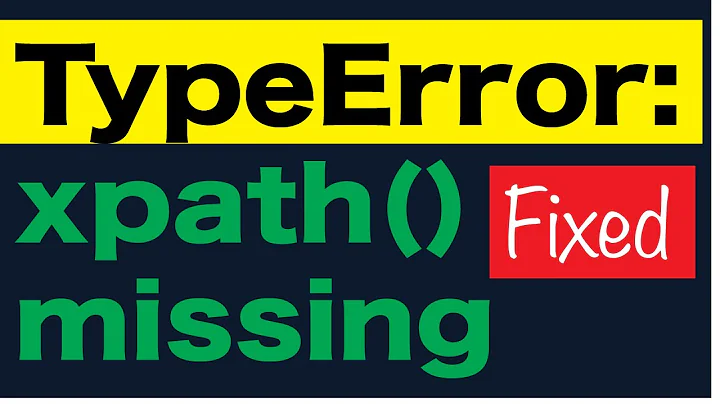Saxon error "XPTY0019: Required item type of first operand of '/' is node(); supplied value has item type xs:string"
According to http://www.w3.org/TR/xslt20/#variable-values, "If the variable-binding element has empty content and has neither a select attribute nor an as attribute, then the supplied value of the variable is a zero-length string.".
So you need to change that, for instance by doing <xsl:variable name="patterns" select="()"/> to bind an empty sequence as the variable value.
Related videos on Youtube
Dimitre Novatchev
I was the first (of what is now the "all golds XML club") to hold all of these: the gold badge in XSLT, the gold badge in XML and the gold badge in XPath. Some of the more interesting things I've been doing can be found via these links: Training course on "XSLT 2 and 1 Foundations", -- 12 modules, 8:45 hours the FXSL page, my Finger Tree implementation in C# My Original XPath Visualizer hosted by Lars Huttar the Extreme Markup Conf. presentation on FXSL 2.0 My Balisage 2013 paper "Programming in XPath 3.0", and the PPT presentation My Blog Follow me on Twitter
Updated on September 03, 2022Comments
-
 Dimitre Novatchev over 1 year
Dimitre Novatchev over 1 yearI have an XSL program which in turn generates an XSL program, which depending on the input might look like this:
<xsl:variable name="patterns"/> <!--empty in this particular case--> <xsl:template name="token"> <xsl:for-each select="$patterns/pattern"> ...When I then run the generated stylesheet, Saxon, bless its heart, is apparently doing some kind of static analysis and complains:
XPTY0019: Required item type of first operand of '/' is node(); supplied value has item type xs:stringand won't even compile the stylesheet.
My workaround was to generate a dummy element in the $patterns nodeset, but is there any cleaner approach here, or way to suppress the compile error?
-
 Admin over 11 yearsThanks for the info, problem solved with an
Admin over 11 yearsThanks for the info, problem solved with anas=node()*attribute. -
 Admin over 11 yearsThanks. The problem is that the XSLT is being generated on the fly, by something that looks like
Admin over 11 yearsThanks. The problem is that the XSLT is being generated on the fly, by something that looks like<tns:variable name="patterns"> <xsl:apply-templates select="terminal/any"/> </tns:variable>(where tns is a namespace prefix mapped to xsl on output), so I don't know in advance whether the variable will be empty or not, which is why theasattribute was the perfect solution for me, seeing as how I'm using XSLT 2.0.





![[Fixed] Error: #1071 – Specified key was too long; max key length is 767 bytes](https://i.ytimg.com/vi/viKVhGc3KPI/hqdefault.jpg?sqp=-oaymwEcCOADEI4CSFXyq4qpAw4IARUAAIhCGAFwAcABBg==&rs=AOn4CLAXneO2NcUkpQGAGZhskj2eAbdZWg)

![Cách sửa lỗi Error establishing a database connection Wordpress [A-Z]](https://i.ytimg.com/vi/YFctFPk12Kg/hq720.jpg?sqp=-oaymwEcCNAFEJQDSFXyq4qpAw4IARUAAIhCGAFwAcABBg==&rs=AOn4CLBWf-V5h4xMNuW5SehZ9Ev_ViPhyQ)









